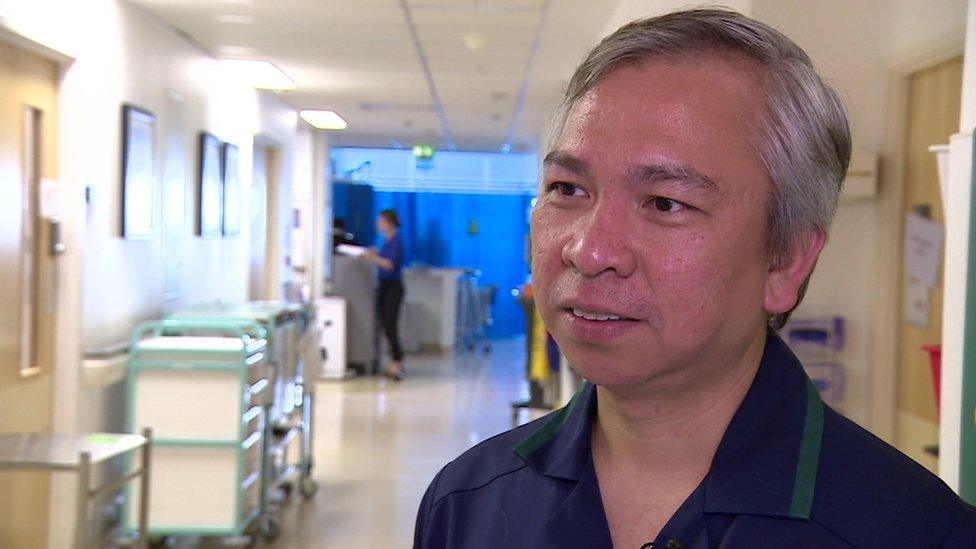'Train NHS staff' to plug doctor gaps, bosses say
- Published
- comments

Nurses, paramedics and pharmacists should be trained to fill in for doctors and help the NHS in England cope with demand, bosses say.
Management body NHS Employers has given the plan the green light after advisers said there were a range of extra tasks they could do with more training.
A Nuffield Trust review found examples of nurses filling in for hospital doctors and pharmacists for GPs.
But unions warned against using it as a quick fix for problems in the NHS.
It has been well documented that there are gaps in junior doctor rotas, while GPs are struggling to cope with the rising number of patients coming through their doors.
NHS Employers asked the Nuffield Trust to look at ways the 1.3 million-strong workforce could be reshaped to help.
The think tank highlighted examples of areas that were already experimenting.
These included:
a group of 10 GP practices in York and Hull that have employed three pharmacists to see patients who need their medicines reviewed
Sheffield Teaching Hospitals Trust's use of nurses in advanced roles to fill in for junior doctors in accident and emergency units, surgery and paediatrics
South East Coast Ambulance creating advanced paramedic roles to treat more patients at the scene without the need to bring them to A&E
holistic workers in Nottingham who have been trained in nursing, physiotherapy, occupational therapy and social care
associate practitioner roles - below the level of nurses - have been used in Bradford to carry out basic health checks on patients with mental health problems
The report said as well as helping cover for doctor shortages, such moves made sense because of the changing nature of care, with much more stress on looking after people with long-term conditions such as diabetes and heart disease rather than curing them.
It said that as doctors only made up about one in 10 of the workforce much more was needed from other health staff, but the Nuffield Trust admitted money would need to be set aside to ensure it happened.
NHS short of front-line staff, MPs say
Report author Candace Imison said there were "huge opportunities" in reshaping the workforce, in both improving patient care and providing staff with more rewarding roles.

And NHS Employers chief executive Danny Mortimer said: "Our challenge now is to take forward the learning and recommendations in the report."
But British Medical Association leader Dr Mark Porter said while he supported increasing the skills of the workforce, this should not be done "at the expense of good quality training for doctors or indeed doctors themselves".
"It takes doctors many years to learn how to provide the best care for their patients, and there is no substitute for this kind of expertise and experience," he said.
"There should be more staff support for doctors to help them coordinate the best possible care for their patients."
And Unison head of health Christina McAnea said the squeeze on funding in the health service meant there was "all too often" no funding for training courses.
"Developing the NHS support workforce must not be seen as a quick and cheap fix for the chronic shortages of nurses and other health workers across the country," she added.
- Published10 September 2015

- Published11 March 2014

- Published14 January 2016
